Officially, the National Bureau of Economic Research says a “technical recession” has hit the United States. The world’s largest economy had already declined by 1.6% in the first quarter – January to March, 2022. Now, the latest data unleashed on Thursday (July 28) shows the country’s economy contracted for the second straight quarter from April to June by 0.9%.
Generally, a recession is defined as two consecutive quarters of decline in a country’s gross domestic product (GDP). On Wednesday (July 27), the Federal Reserve announced another 75-basis point increase in the interest rate. However, the Biden administration and some economists, not to mention White House spin doctors, have refused to admit that the U.S. has plunged into recession.
President Biden, struggling with just 30% approval rating, has conveniently downplayed the negative GDP report. His top advisers insist that the American economy remains strong, despite the writing on the wall of a recession. Facing a defeat in the coming November midterm election, the White House expressed confidence the Fed could tame inflation with higher interest rates.
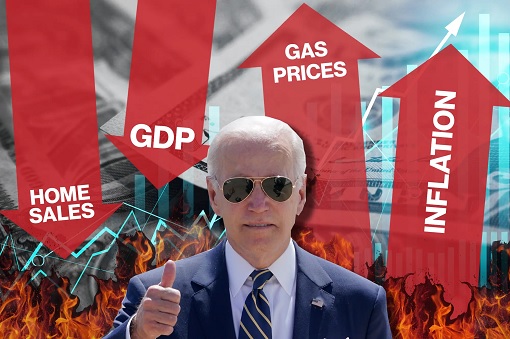
The Fed is hoping to achieve a “soft landing” – arresting inflation without triggering a recession. But most economists were skeptical of a soft landing, believing the rapid inflation, high oil prices and global instability was like landing a plane during an earthquake. In fact, William Dudley, a former president of the Federal Reserve Bank of New York, called a recession “virtually inevitable”.
Federal Reserve chairman Jerome Powell, who said last month that the recession is a “possibility”, now said he does not think the U.S. is currently in a recession, ignoring the two quarters of declining GDP. Powell was obviously under pressure because the White House argues that just two quarters of negative growth doesn’t automatically mean the economy is in a recession.
Treasury Secretary Janet Yellen has an even more mind-boggling twist and spin. She said the U.S. economy is in a state of “transition”, not recession. But exactly to what state the economy is actually transitioning into? If Biden administration can slap the new word transition to hide recession to suit its political agenda, perhaps the world can finally celebrate the end of recession.
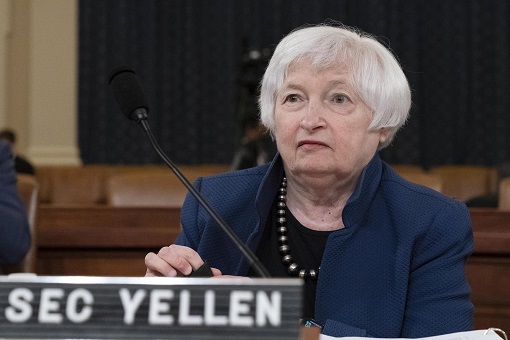
Yellen argues that the U.S. is not in recession because the labour market was extremely strong – an average 375,000 new jobs each month over the past 3 months. Of course, she conveniently ignored an increase in jobless claims for the third straight week – 251,000 claims during the week ending July 16 – the highest jobless claims since November.
However, when the data were presented to her, Yellen claimed that jobless claims numbers cannot be signs of a possible recession. So, she cherry-picked the 375,000 new jobs as proof that there isn’t any recession, but at the same time refused to accept 251,000 jobless claims as signs of a recession. She wanted to see “everything” in negative before confirming a recession.
The U.S. inflation in June hit 9.1%, rising from 8.6% recorded in May. This is the highest inflation in more than 40 years after January’s 7.5%, February’s 7.9%, March’s 8.5% and April’s 8.3%. Again, when Yellen was grilled about the consecutive 6 months of inflation, she diverted attention and said high inflation does not only happen in the U.S., but around the world.
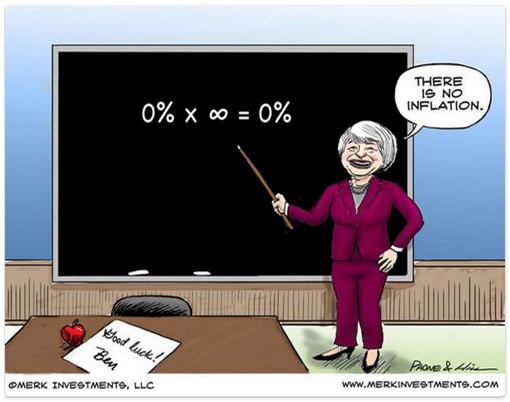
But why should we believe either Yellen or Powell when it was the Fed who started the inflation in the first place. While Biden conveniently blames Russian Vladimir Putin for the current financial problems in the U.S. and the world, in reality, it was the United States that screwed up its own economy. And the person who had admitted that is none other than Janet Yellen.
In a recent interview with CNN, Janet Yellen, formerly Fed chairperson, said she was “wrong” about how severe inflation would be. She admitted her screw up – “I think I was wrong then about the path that inflation would take”. She was referring to her remarks last year where she indicated there would only be a “small risk” of inflation, and that it would be “manageable”.
Worse, she said something that was absolutely stunning – “There have been unanticipated and large shocks to the economy that have boosted energy and food prices, and supply bottlenecks that have affected our economy badly, that I didn’t at the time ‘didn’t fully understand’. But we recognize that now the Federal Reserve is taking the steps that it needs to take.”
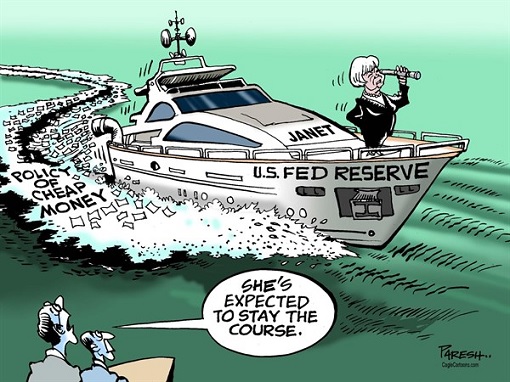
So, she did not fully understand the economic problem last year, yet she had irresponsibly declared that inflation would be “a small risk,” “manageable” and “not a problem”. The burning question is this – if she was wrong last time, how do we know that she isn’t wrong again this time? How a person who did not fully understand the basic economic problem could become the U.S Treasury Secretary?
To make matters worse, the U.S. has a weak and indecisive Federal Reserve Chairman Jerome Powell, who was supposed to have raised the interest rates last year when the acceleration of price began. But he didn’t, preferring to wait and see. Powell could not perform his job because inflation is not the problem of the Federal Reserve alone, but also the government policy makers.
For years, under pressure, the Fed had been insisting that the high inflation was temporarily in order to justify an interest rate near zero because the White House wanted to make Americans feel rich by allowing them to borrow and spend. Even before the Covid-19 pandemic, the Fed was responsible for flushing the financial markets with cheap money – about US$120 billion a month – since 2018.
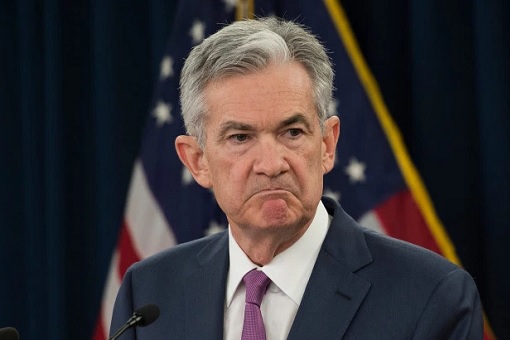
Jerome Powell, speaking during a news conference on May 4 to raise interest rate by 50 basis points, had assured economists and investors that a hike of 75 basis points (which was last done in 1994) was off the table. Yet, it didn’t take long for the Federal Reserve to flip-flop and make a spectacular U-turn by imposing the 75 basis points – twice – since then.
Interestingly, El-Erian, chief economic advisor at Allianz, had said the current record high inflation could have been avoided had the Federal Reserve acted earlier and shown humility after it wrongly described inflation as “transitory”. Earlier, El-Erian said he feared that the “stagflation” – low growth, high inflation – could see an inflation rate reach 9%, which eventually happened in June.
In desperation to paint a rosy picture, White House economic adviser Brian Deese tried to convince Americans that everything is fine because people aren’t starving. He basically said that unless the U.S. is facing famine like certain countries, there isn’t a recession. In reality, consumer confidence has collapsed, the housing market is melting and inflation is causing real hardship.
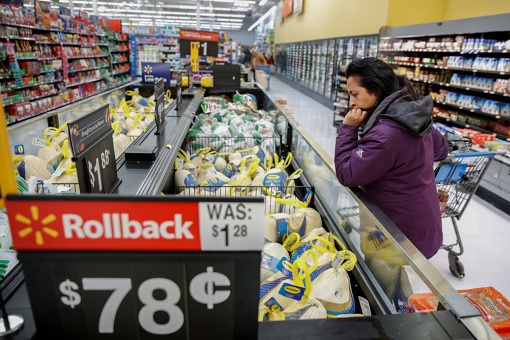
Hilariously, Brian Deese was the same National Economic Council director of Joe Biden who wrote in 2008 – “Economists have a technical definition of recession, which is two consecutive quarters of negative growth”. Now, the Deese said “two negative quarters of GDP growth is not the technical definition of recession”. Can he make up his mind?
While the Democrats policymakers in the White House hate to call it a recession, you can bet your last dollar that they will not think twice about calling two consecutive quarters of negative GDP as recession if the Republicans are the one in the Oval Office. Republican National Committee mocked President Biden – “You can’t change reality by arguing over definitions”.
Moving the goalposts, it’s both laughable and double standard that the U.S. government has deliberately chosen to redefine the conventional meaning of a recession so that it could avoid the economy from plunging into a recession earlier than it wants it to because of the midterm election. By the time it finally agrees to call it a recession, it will be too late and could become a depression.
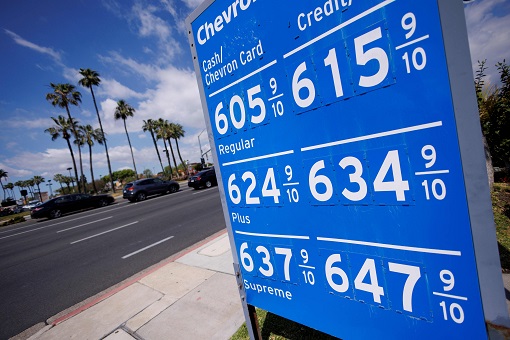
Other Articles That May Interest You …
- Unacceptably High Inflation – Panicked U.S. Scrambles To Cap Russian Oil Price, But Here’s Why The Scheme Is Pure Fantasy
- Oil Price Could Go Higher & Europe Could Be In Trouble – Putin Might Abruptly Cut Gas Supplies To The E.U. In Coming Weeks
- A Shift In Propaganda To Damage Control In Washington – Why President Biden & Western Media Making U-Turn Now
- Recession Inevitable – Federal Reserve May Slap 0.75% Rate Hike To Trigger A Recession To Try Fix Its Own Screw-Up
- Gloom & Doom Views From World’s Financial Elite At World Economic Forum – Russia Appears Winning Ukraine War
- Economic & Financial Meltdown Is Here – All Signs Lead To Recession, Stagflation, Jobless And A Repeat Of Dot-Com Bust
- Russia Cuts Off Gas To Poland & Bulgaria – European Gas Jumps 24% As Putin Starts Punishing “Unfriendly Countries”
- Ukraine Invasion – Putin’s Real Intention That Conventional Wisdom Have Failed To Comprehend
- U.S. Sanctions Fail – How Russian Currency Emerges Stronger Than Pre-War With A New Gold Standard
- Pay Gas In Ruble Or Else – Europe In Serious Trouble As Putin Retaliates Against Western Sanctions
- From Wheat To Oil & Gas – How Russia Invasion Of Ukraine Affects Europe’s Food Supply, And Even Your Loaf Of Bread

|
|
July 29th, 2022 by financetwitter
|


|

|

|

|

|

|




























Comments
Add your comment now.
Leave a Reply